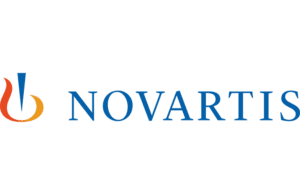 As part of its ongoing restructuring efforts, Novartis AG (NYSE:NVS) is reportedly considering selling its ophthalmology and respiratory businesses, according to Bloomberg.
As part of its ongoing restructuring efforts, Novartis AG (NYSE:NVS) is reportedly considering selling its ophthalmology and respiratory businesses, according to Bloomberg.
Private equity firms are reportedly sizing up the business units.
According to the company’s website, its core therapeutic areas are cardiovascular, hematology, solid tumors, immunology and neuroscience.
Novartis’s ophthalmology division focuses on various therapies for vision problems, including glaucoma, ocular surface disease and age-related macular degeneration.
Its respiratory disease unit focuses on developing therapies for asthma, idiopathic pulmonary fibrosis and chronic obstructive pulmonary disease (COPD).
Earlier this year, the company announced that it would lay off about 8,000 employees, representing 7.4% of its workforce. The company had roughly 108,000 workers.
In 2019, Novartis announced it would spin off its Alcon eye-care division. The company spent $39 billion on the unit in 2010.
Citing anonymous sources, Bloomberg notes that Novartis could earn an estimated $5 billion by selling its ophthalmology unit.
Novartis also is planning on selling its generics division, Sandoz. It expects the divestiture of that unit to be complete in 2023. In 2021, Sandoz generated approximately $10 billion in revenue.
Several of the company’s competitors, including J&J (NYSE:JNJ), GSK (NYSE:GSK) and Pfizer (NYSE:PFE), have also spun off generics or consumer health units to focus on developing novel medicines.
Earlier this week, BioNTech SE (Nasdaq:BNTX) announced that it entered into an agreement to acquire a GMP-certified manufacturing facility from Novartis. BioNTech will use the facility to produce mRNA-based vaccines.
In its Q3 earnings announcement, Novartis noted that six drugs were chief drivers of its growth. Those include Cosentyx (secukinumab), Entresto (sacubitril/valsartan), Zolgensma (onasemnogene abeparvovec), Kisqali (ribociclib), Kesimpta (ofatumumab) and Leqvio (inclisiran).
Earlier this week, the company stopped a Phase 1 study of its CD73 antagonist for a “low likelihood of efficacy.”
Today, NVS shares dipped to $83.55. Since the beginning of the year, NVS shares have fallen close to 5%.